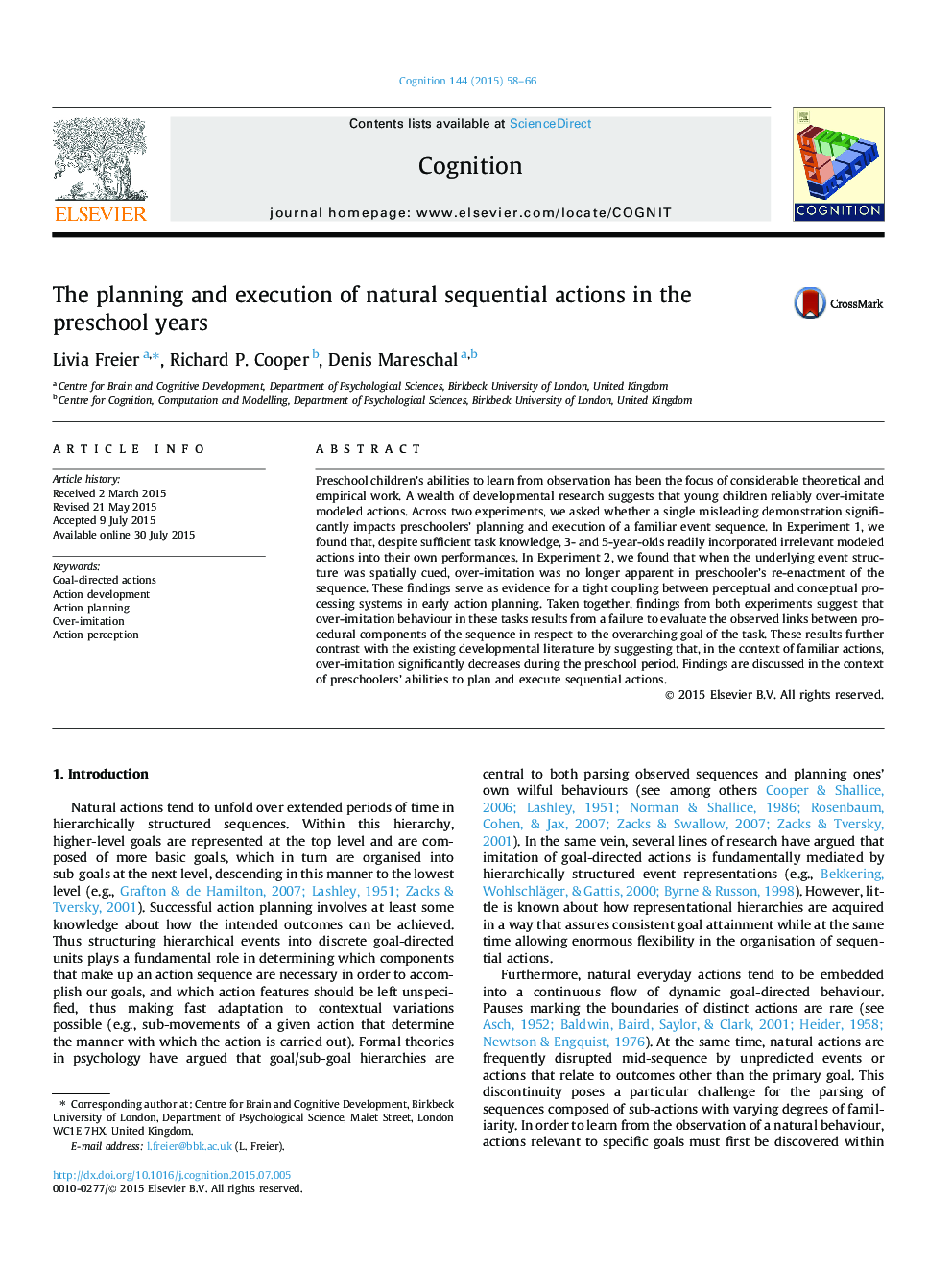| Article ID | Journal | Published Year | Pages | File Type |
|---|---|---|---|---|
| 7286606 | Cognition | 2015 | 9 Pages |
Abstract
Preschool children's abilities to learn from observation has been the focus of considerable theoretical and empirical work. A wealth of developmental research suggests that young children reliably over-imitate modeled actions. Across two experiments, we asked whether a single misleading demonstration significantly impacts preschoolers' planning and execution of a familiar event sequence. In Experiment 1, we found that, despite sufficient task knowledge, 3- and 5-year-olds readily incorporated irrelevant modeled actions into their own performances. In Experiment 2, we found that when the underlying event structure was spatially cued, over-imitation was no longer apparent in preschooler's re-enactment of the sequence. These findings serve as evidence for a tight coupling between perceptual and conceptual processing systems in early action planning. Taken together, findings from both experiments suggest that over-imitation behaviour in these tasks results from a failure to evaluate the observed links between procedural components of the sequence in respect to the overarching goal of the task. These results further contrast with the existing developmental literature by suggesting that, in the context of familiar actions, over-imitation significantly decreases during the preschool period. Findings are discussed in the context of preschoolers' abilities to plan and execute sequential actions.
Related Topics
Life Sciences
Neuroscience
Cognitive Neuroscience
Authors
Livia Freier, Richard P. Cooper, Denis Mareschal,
